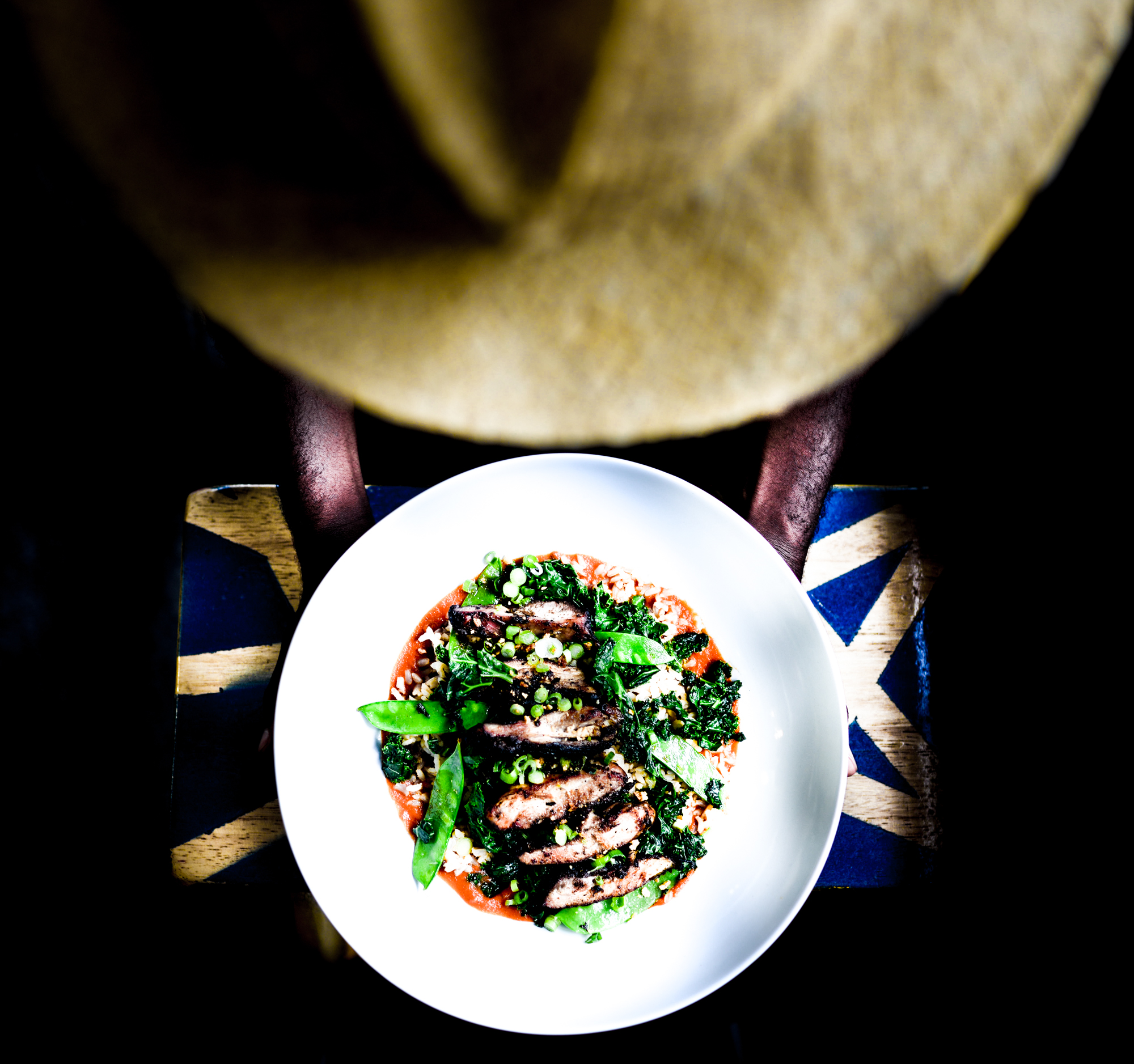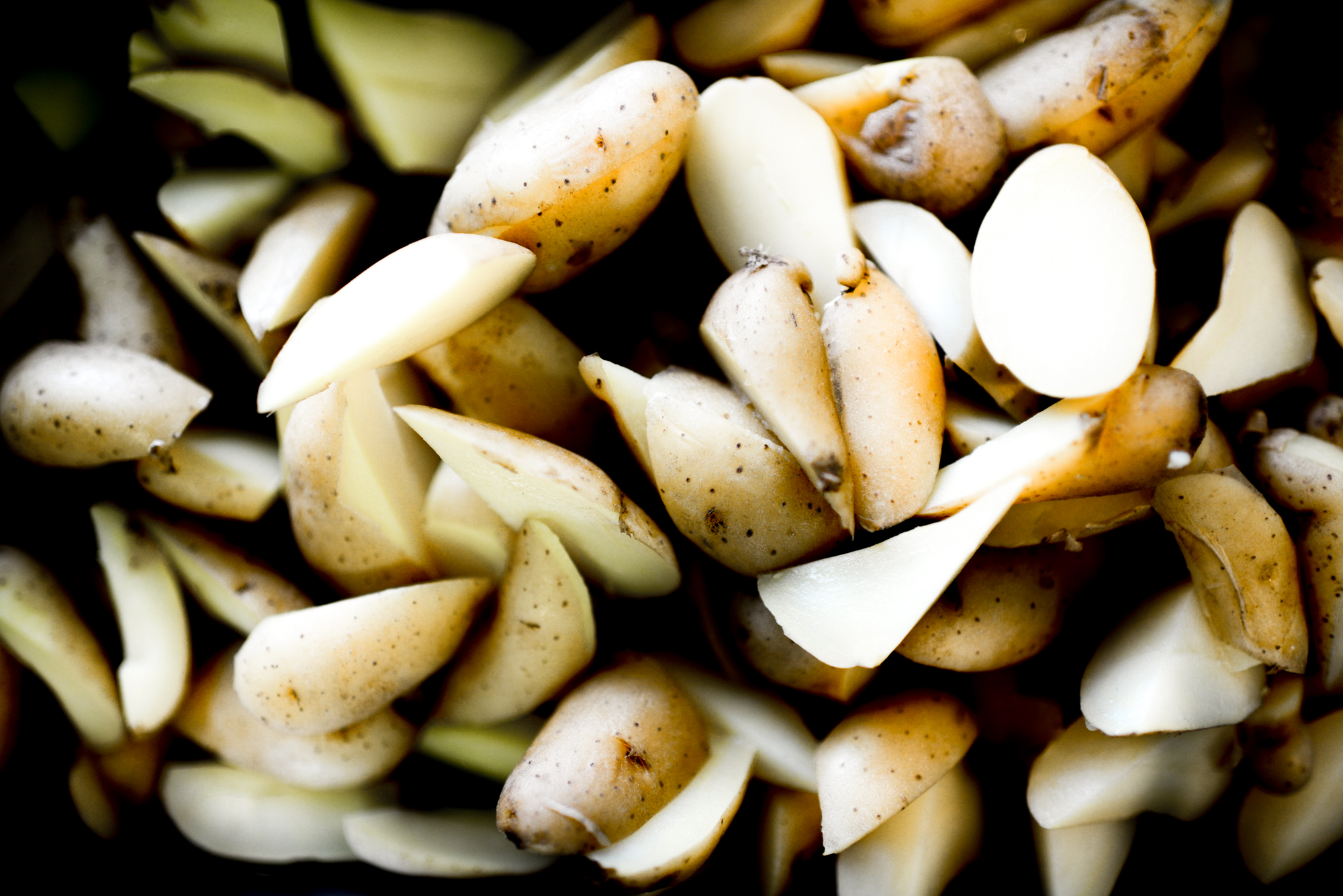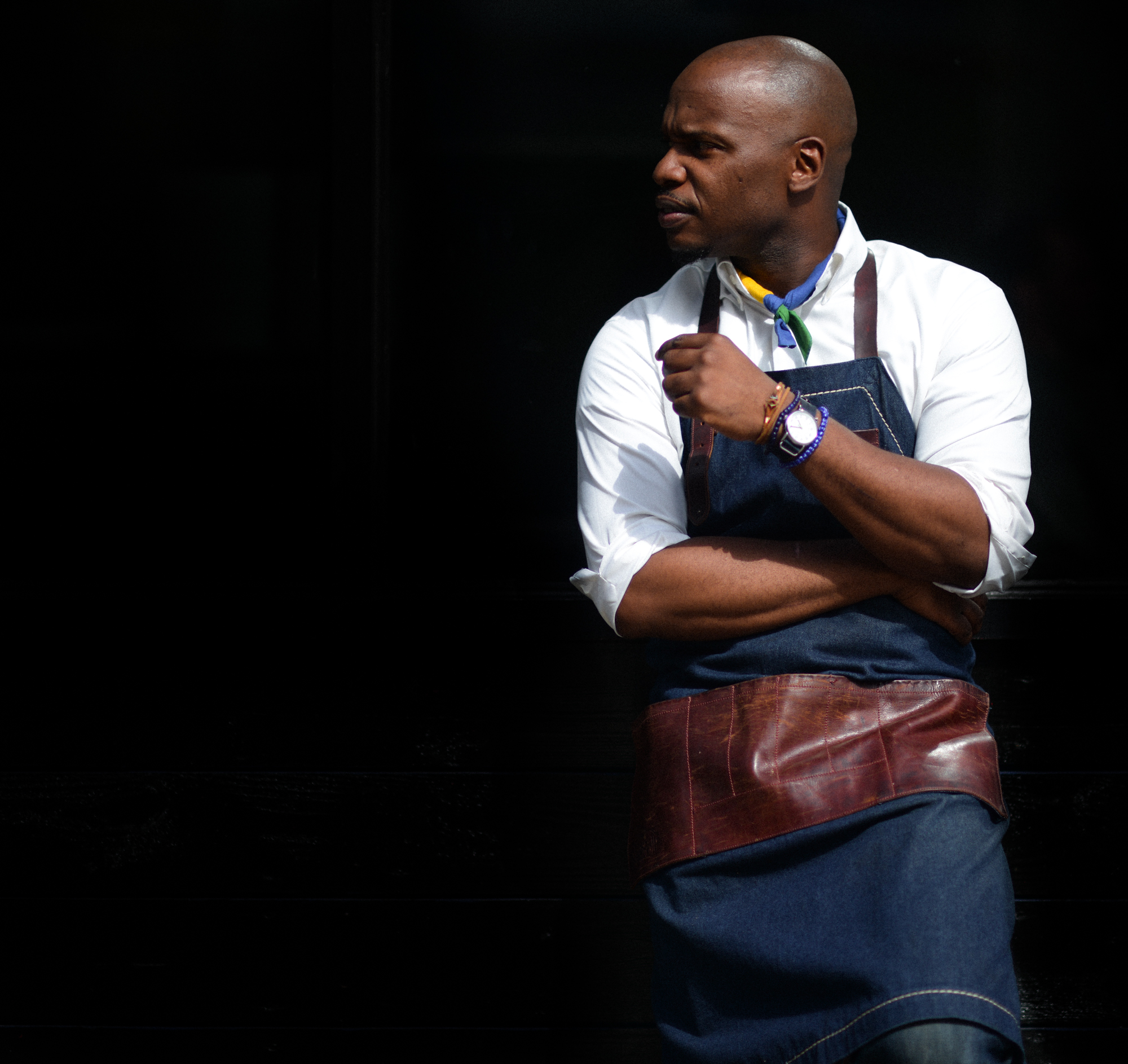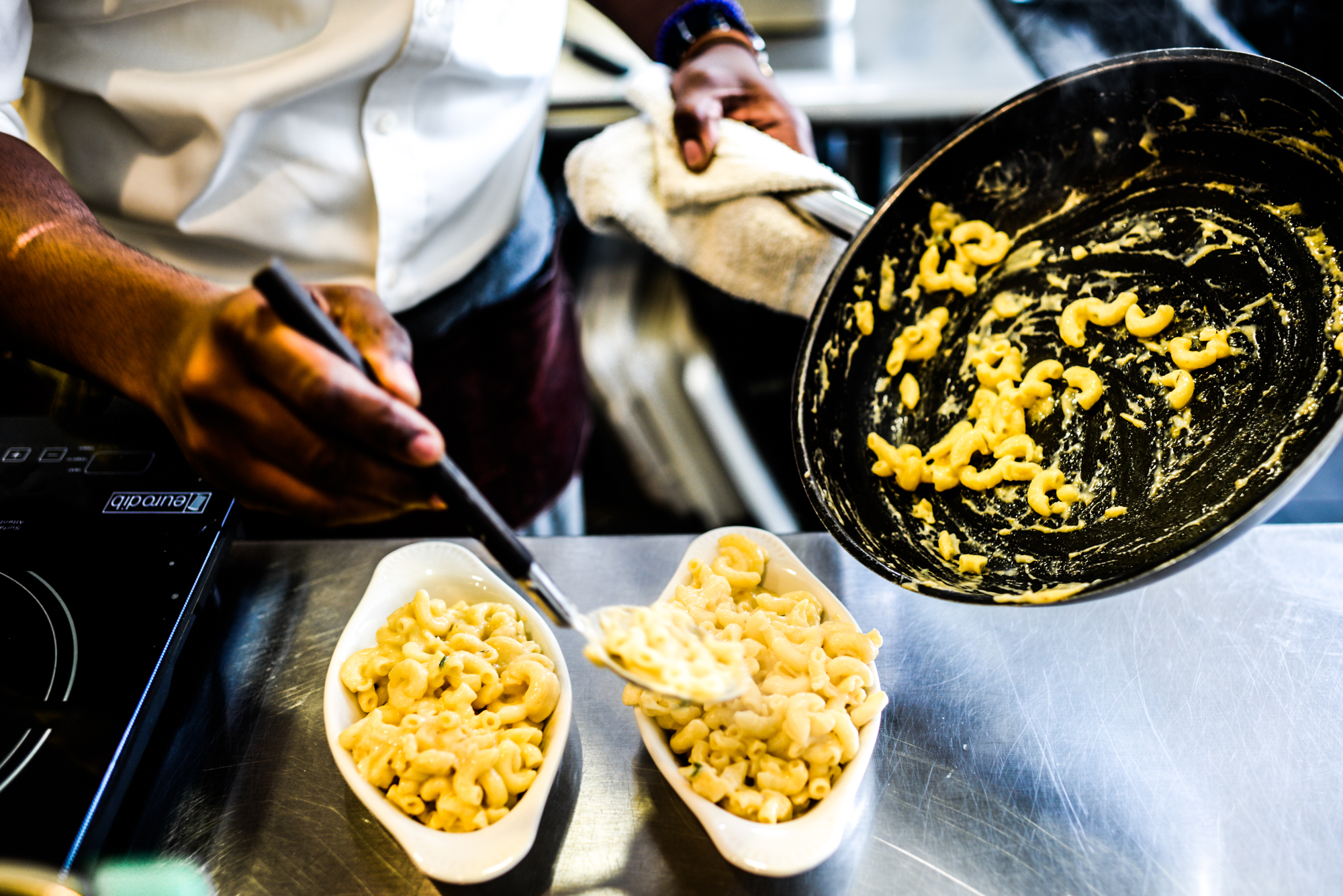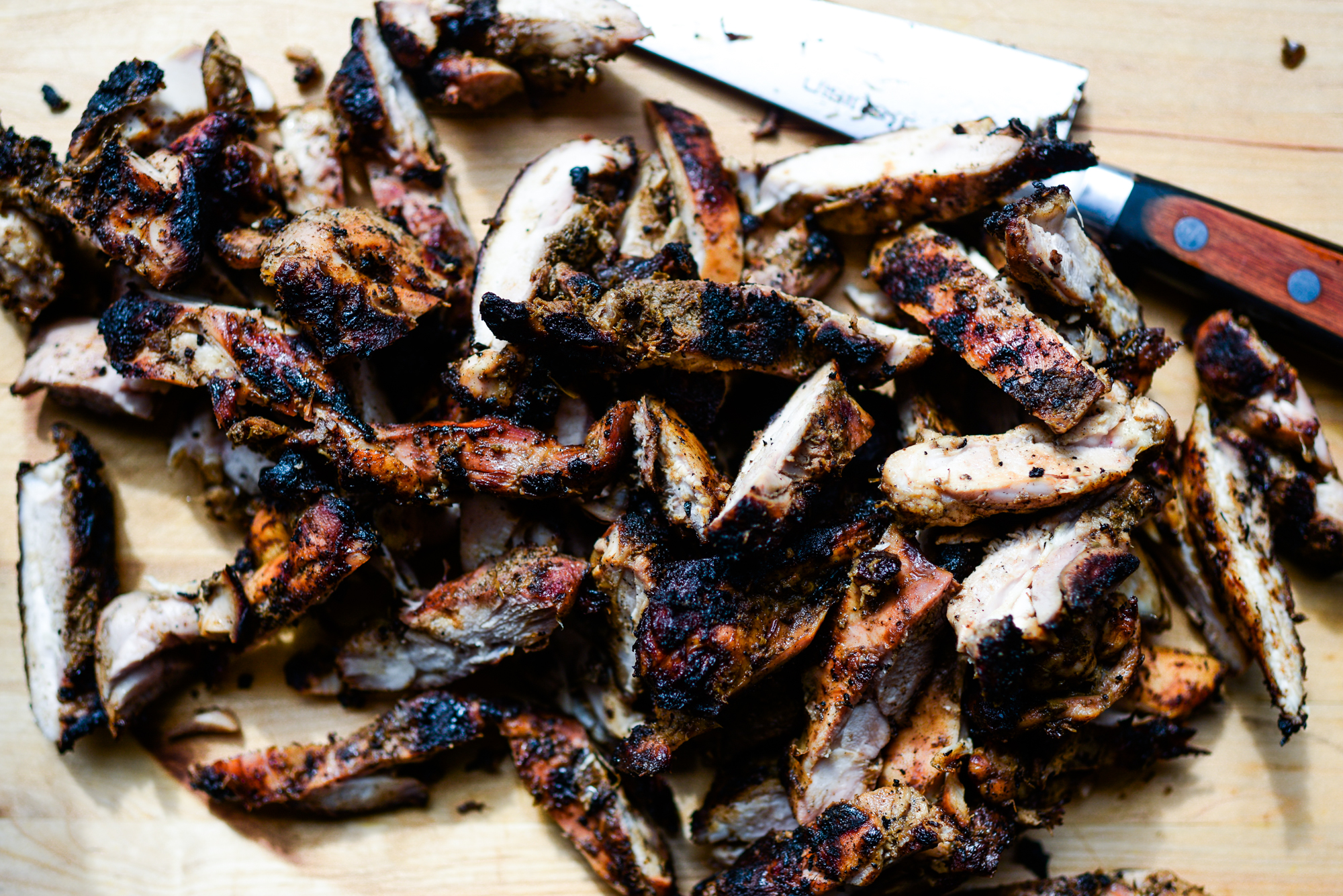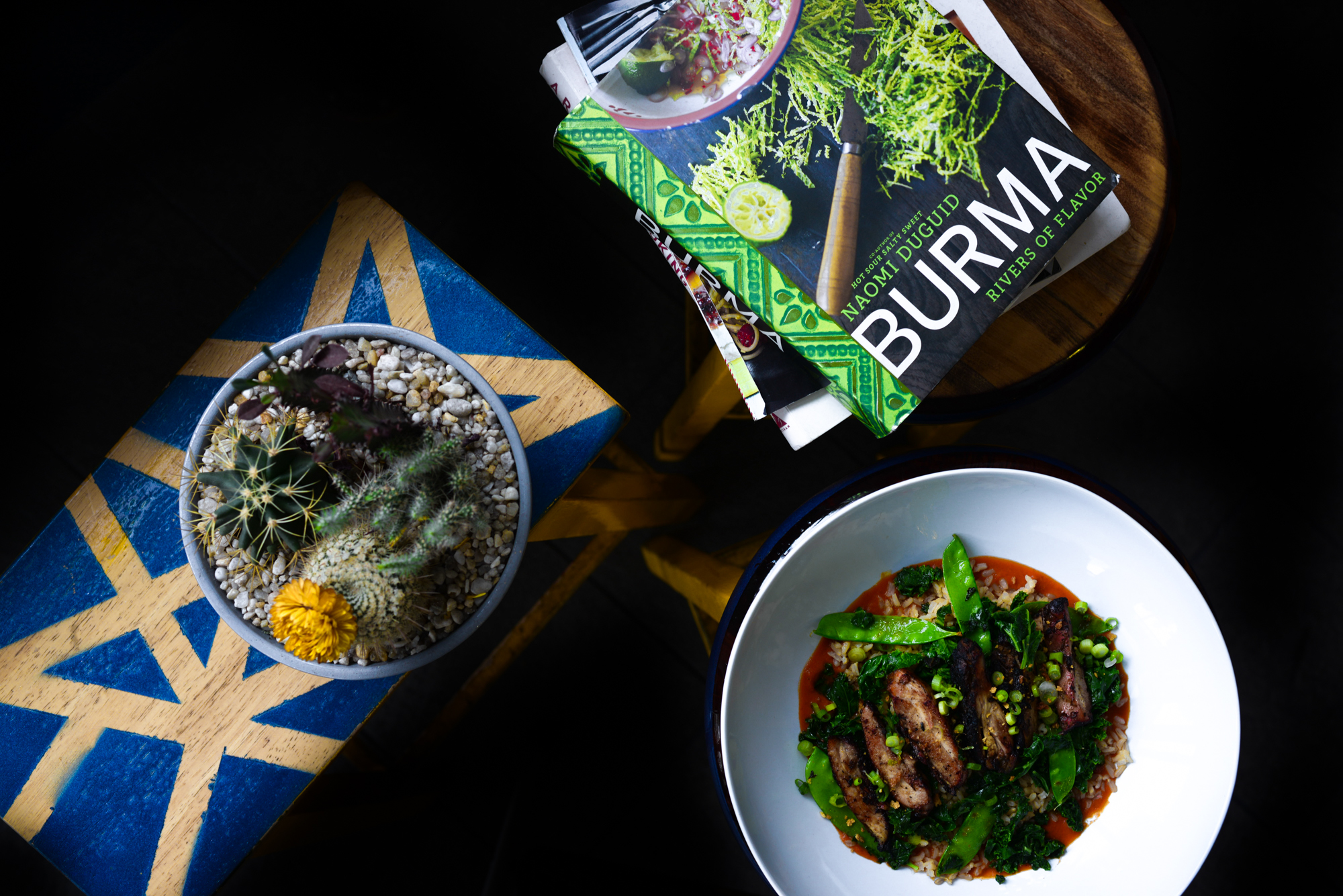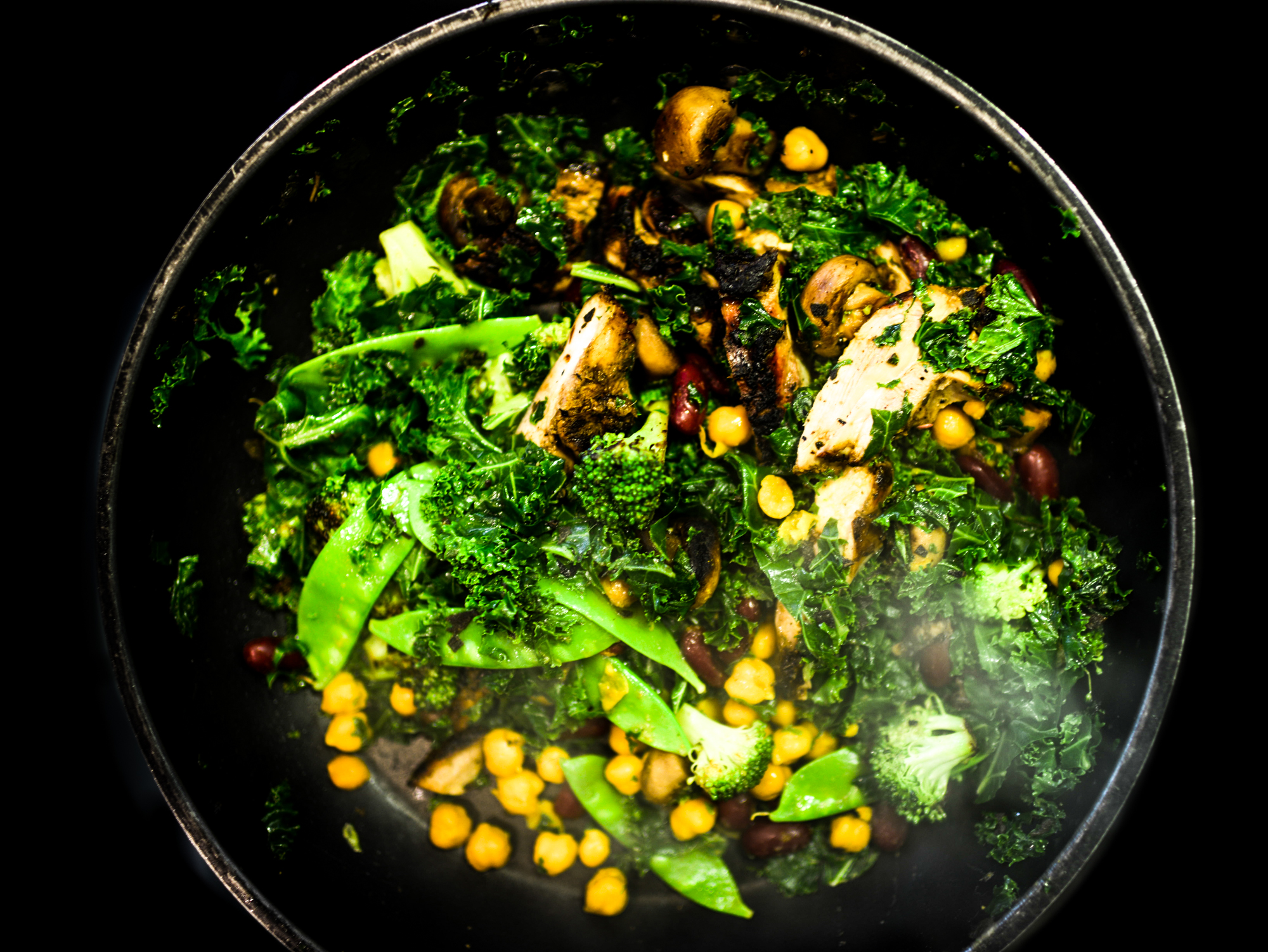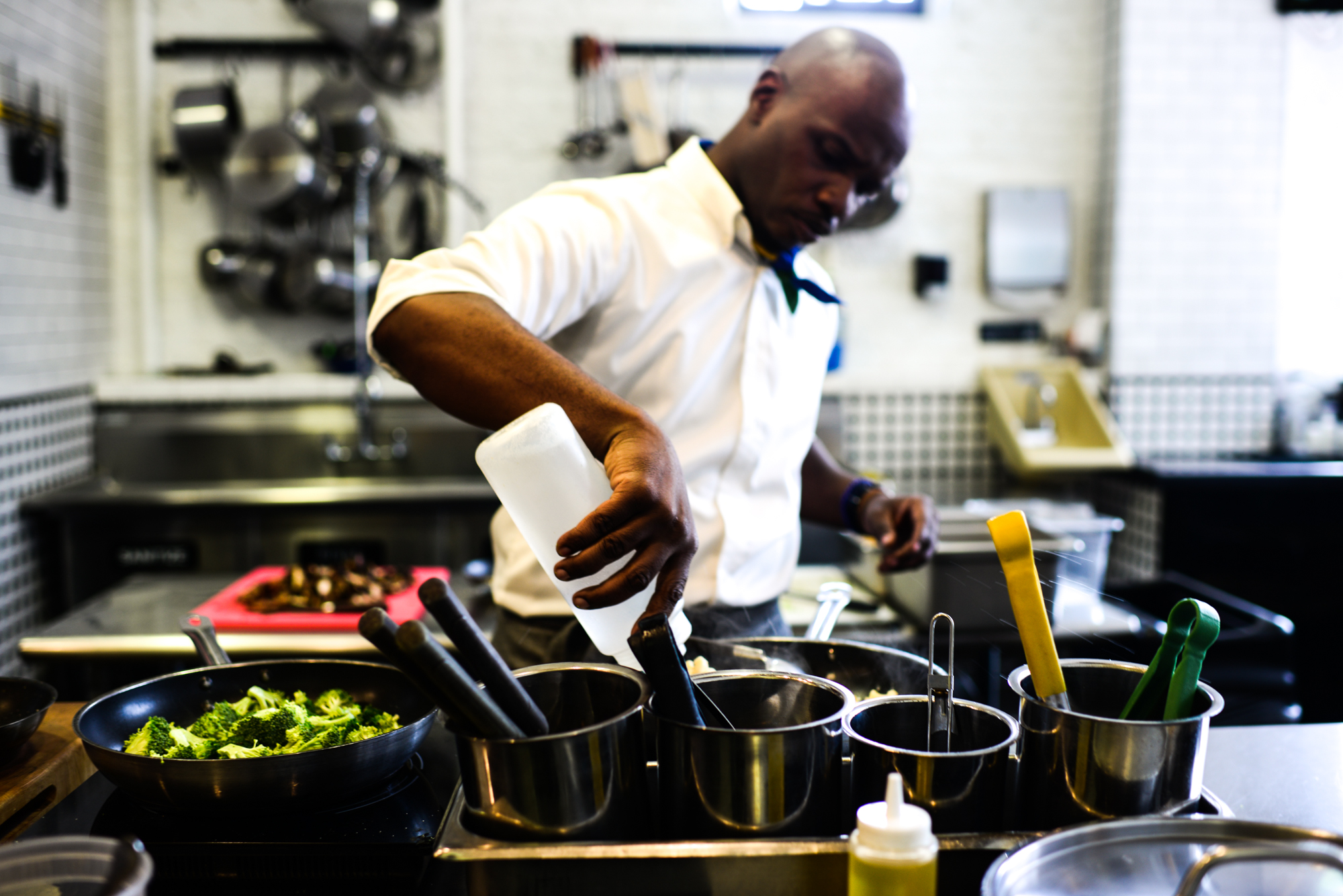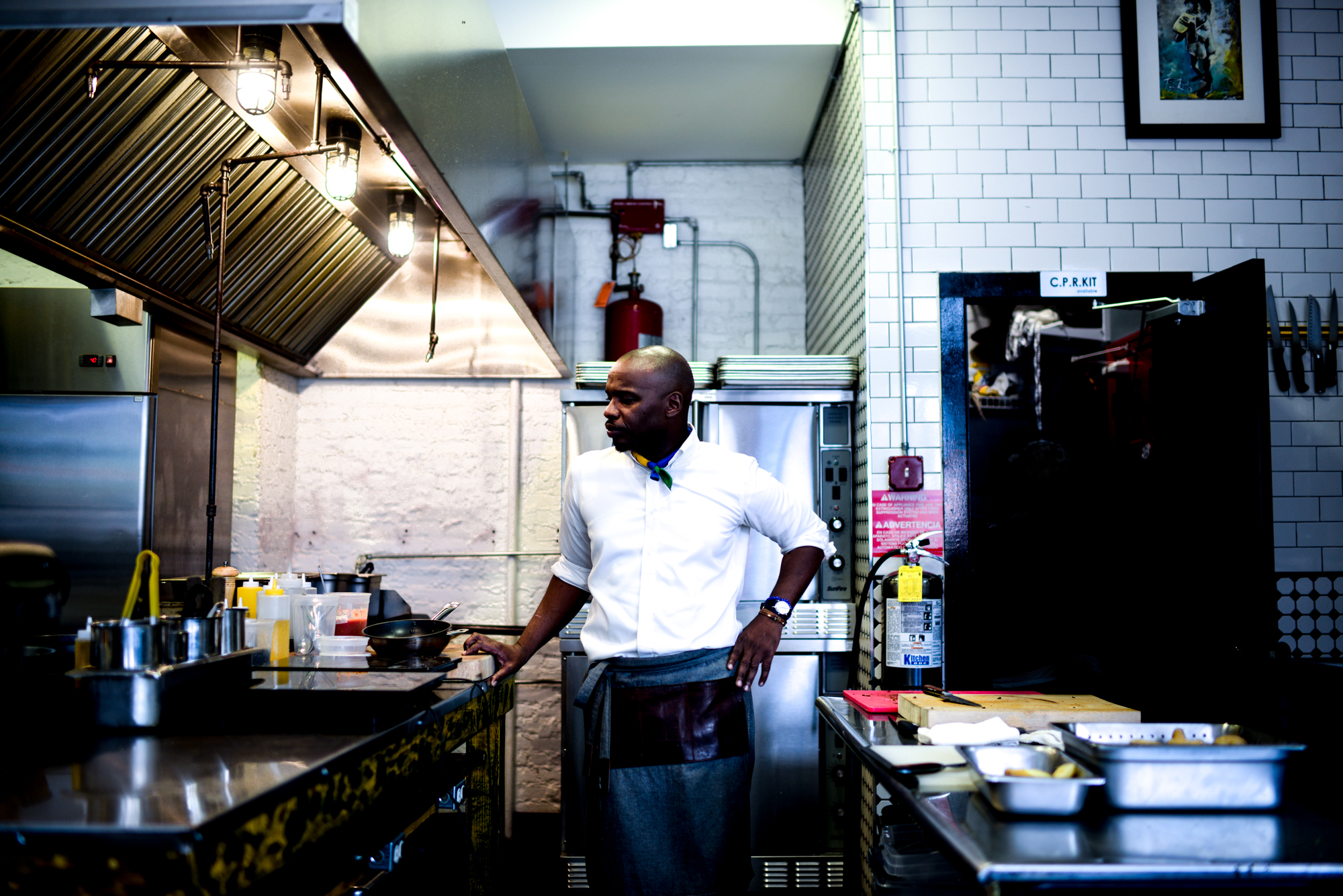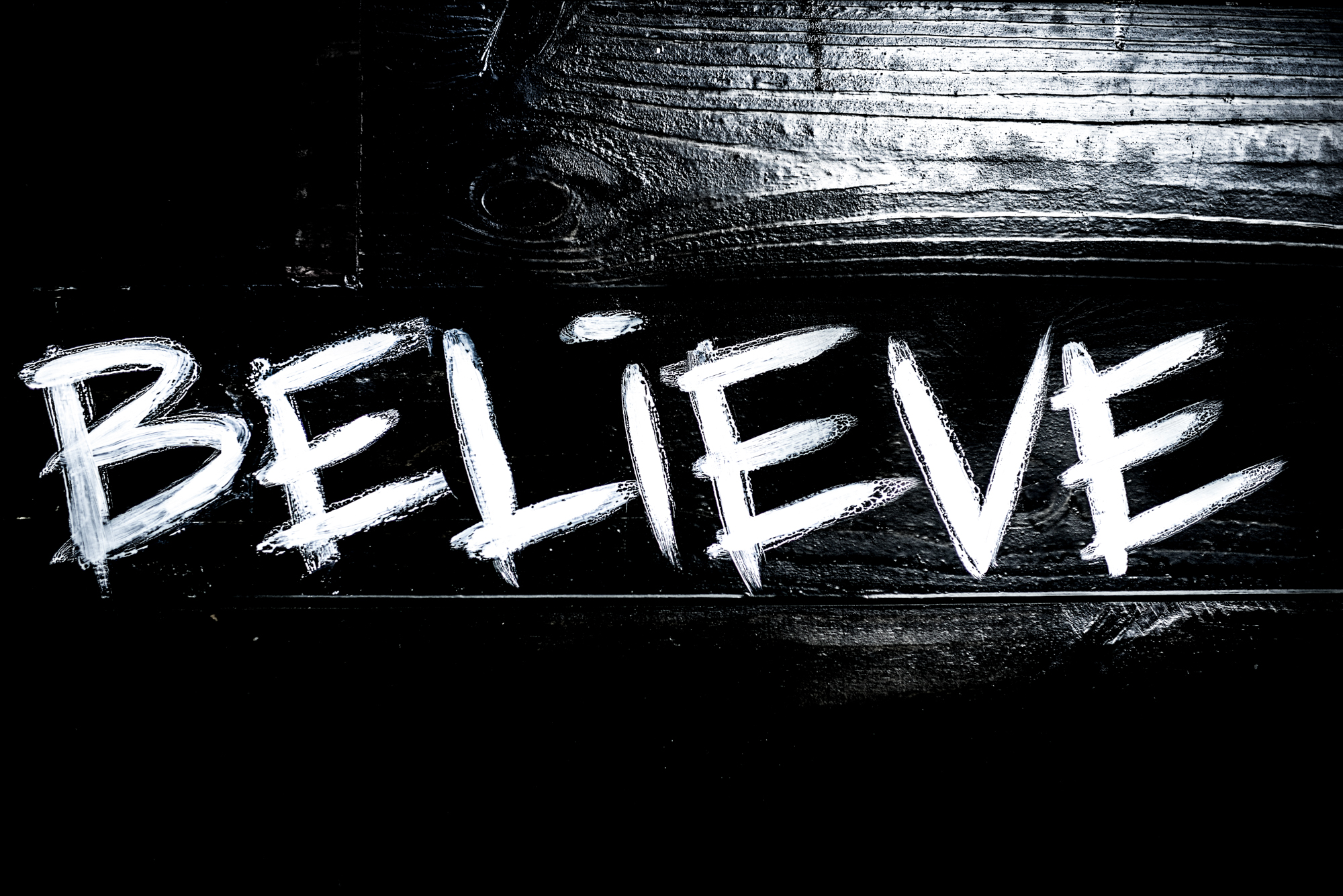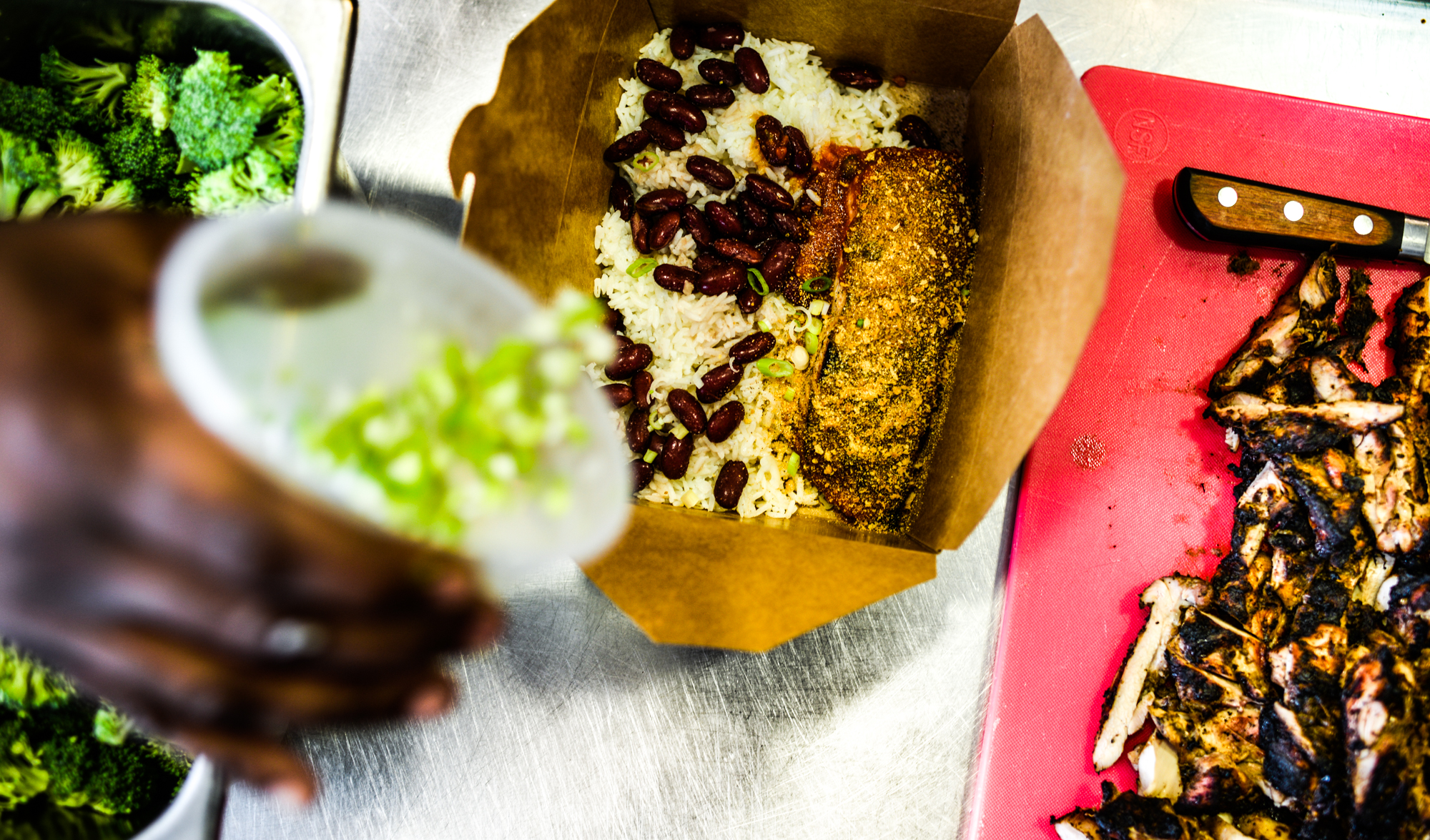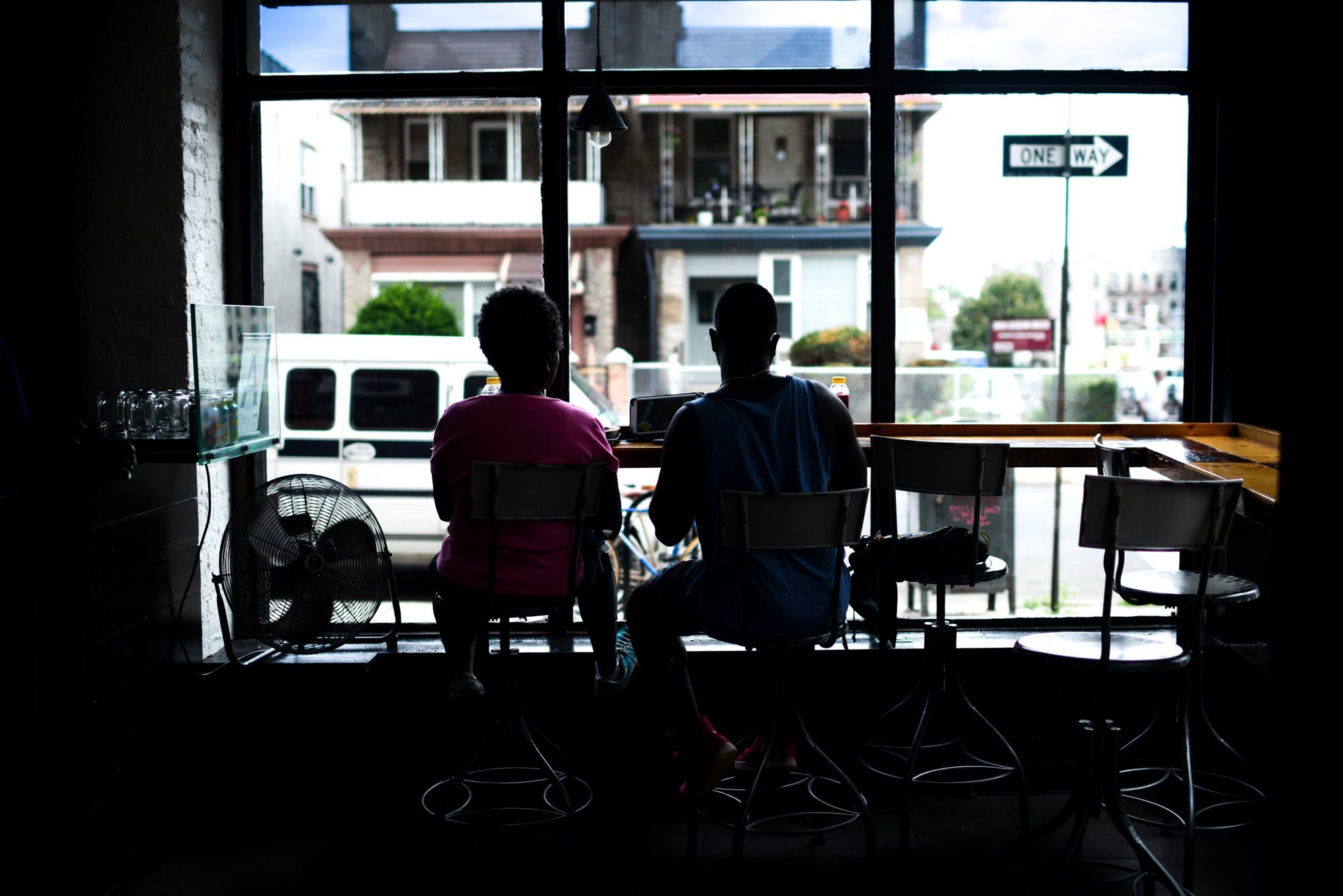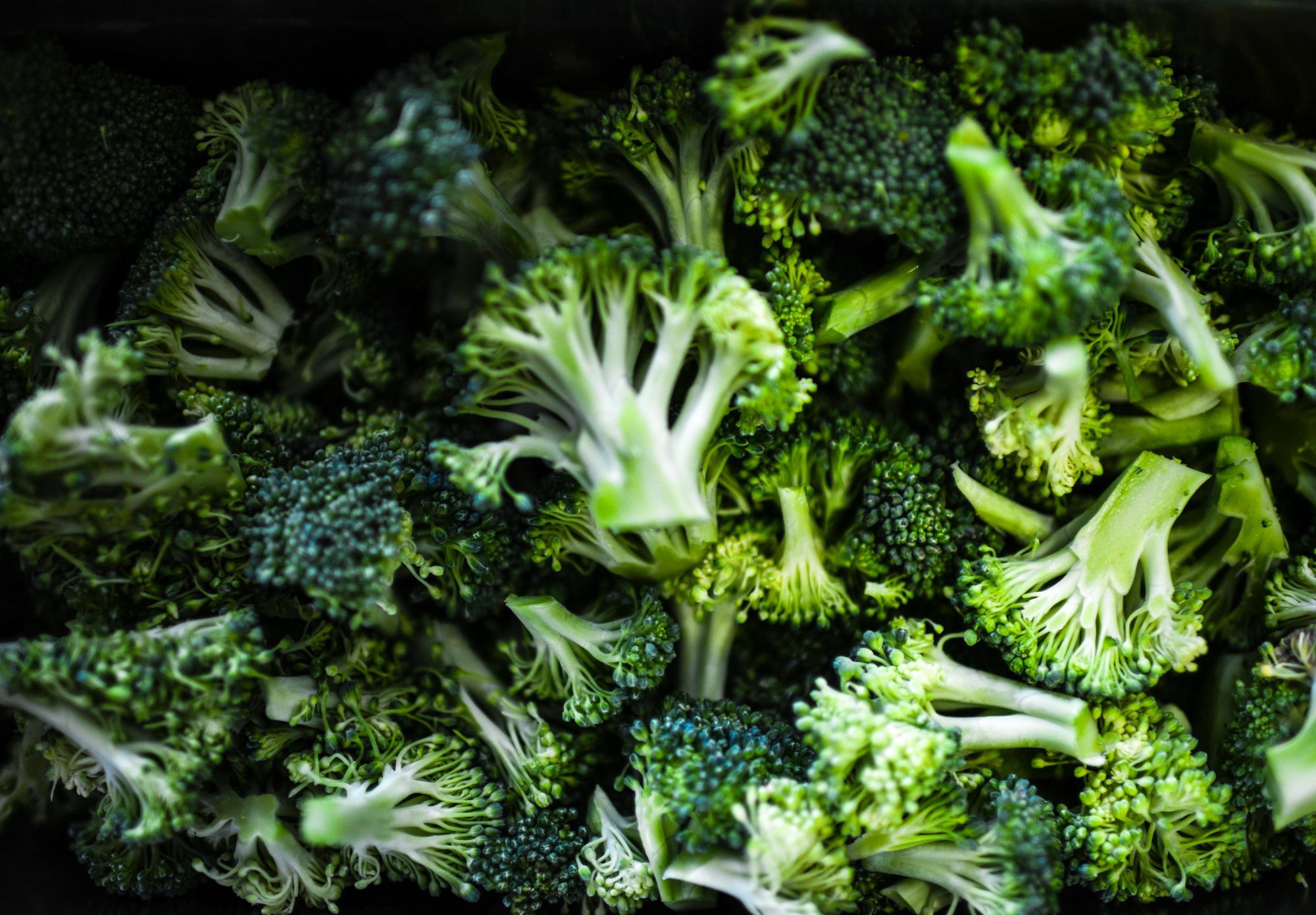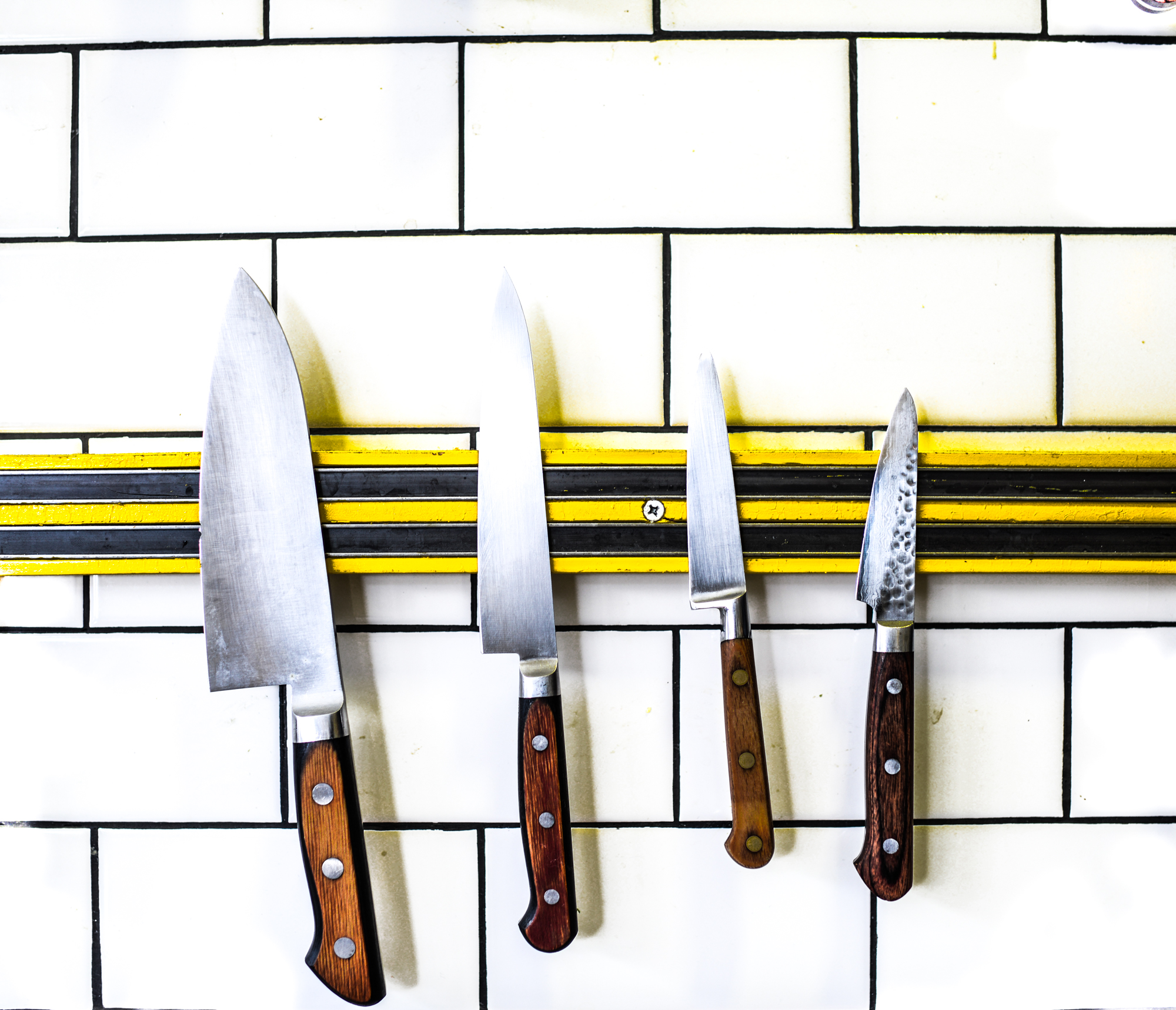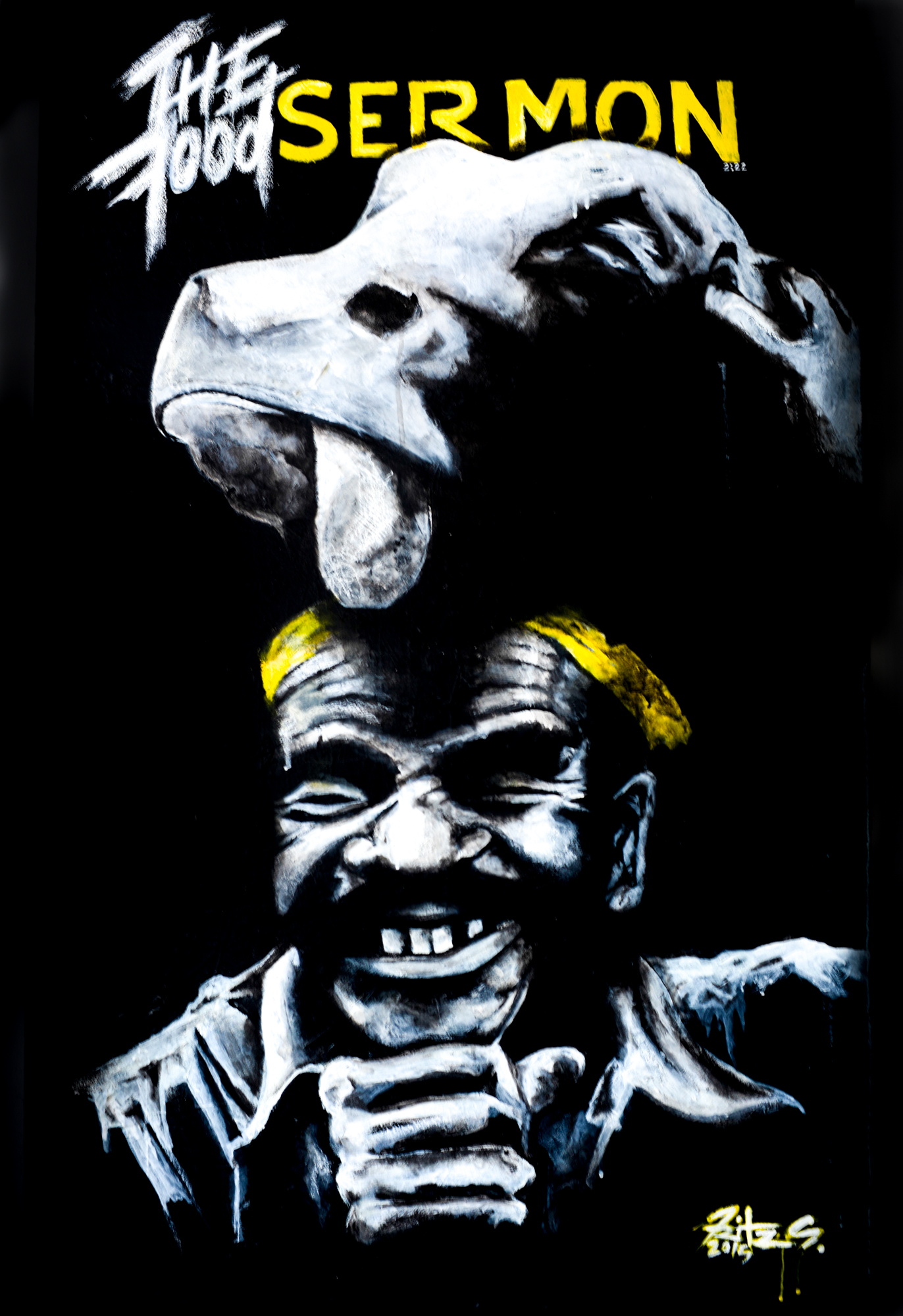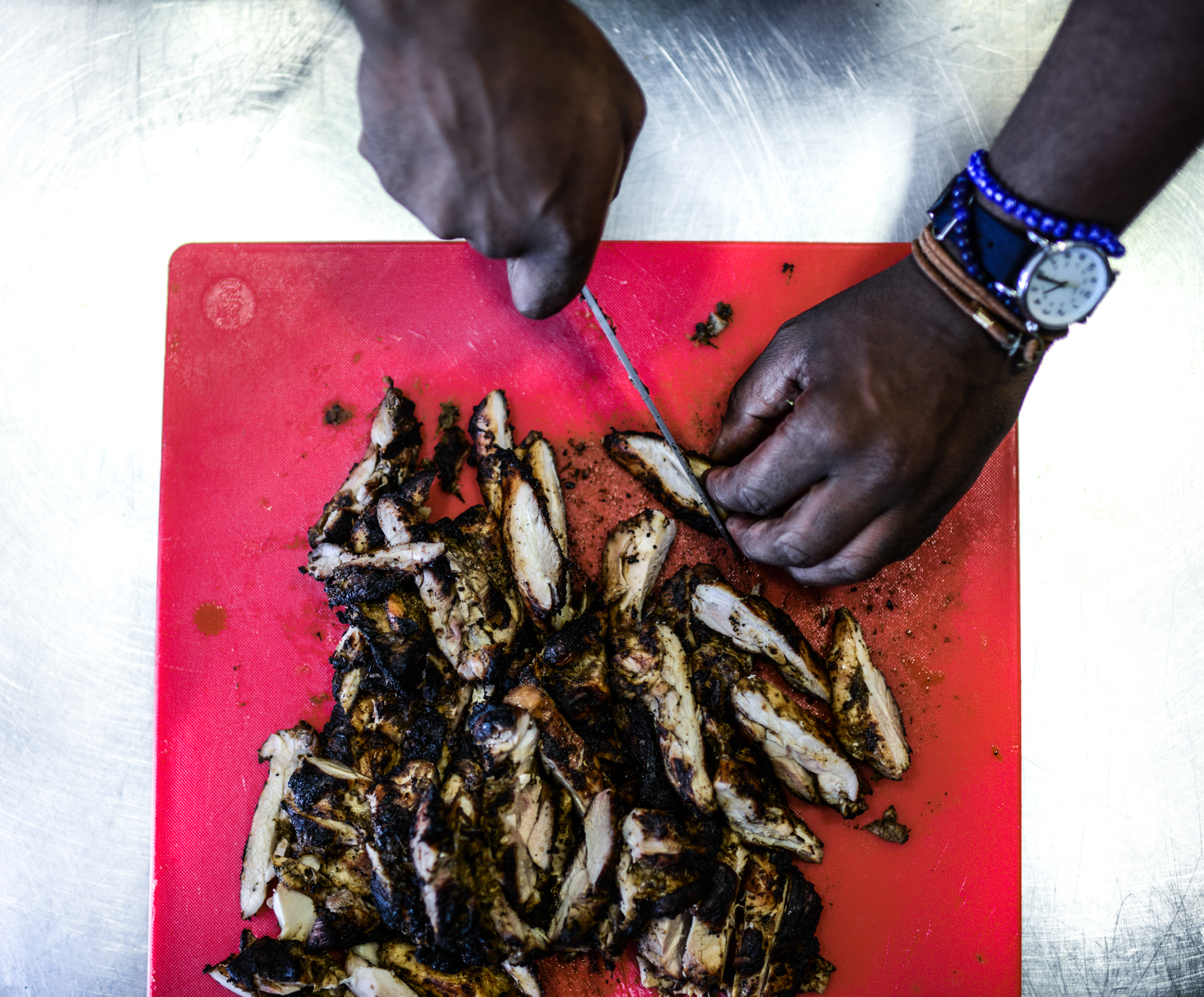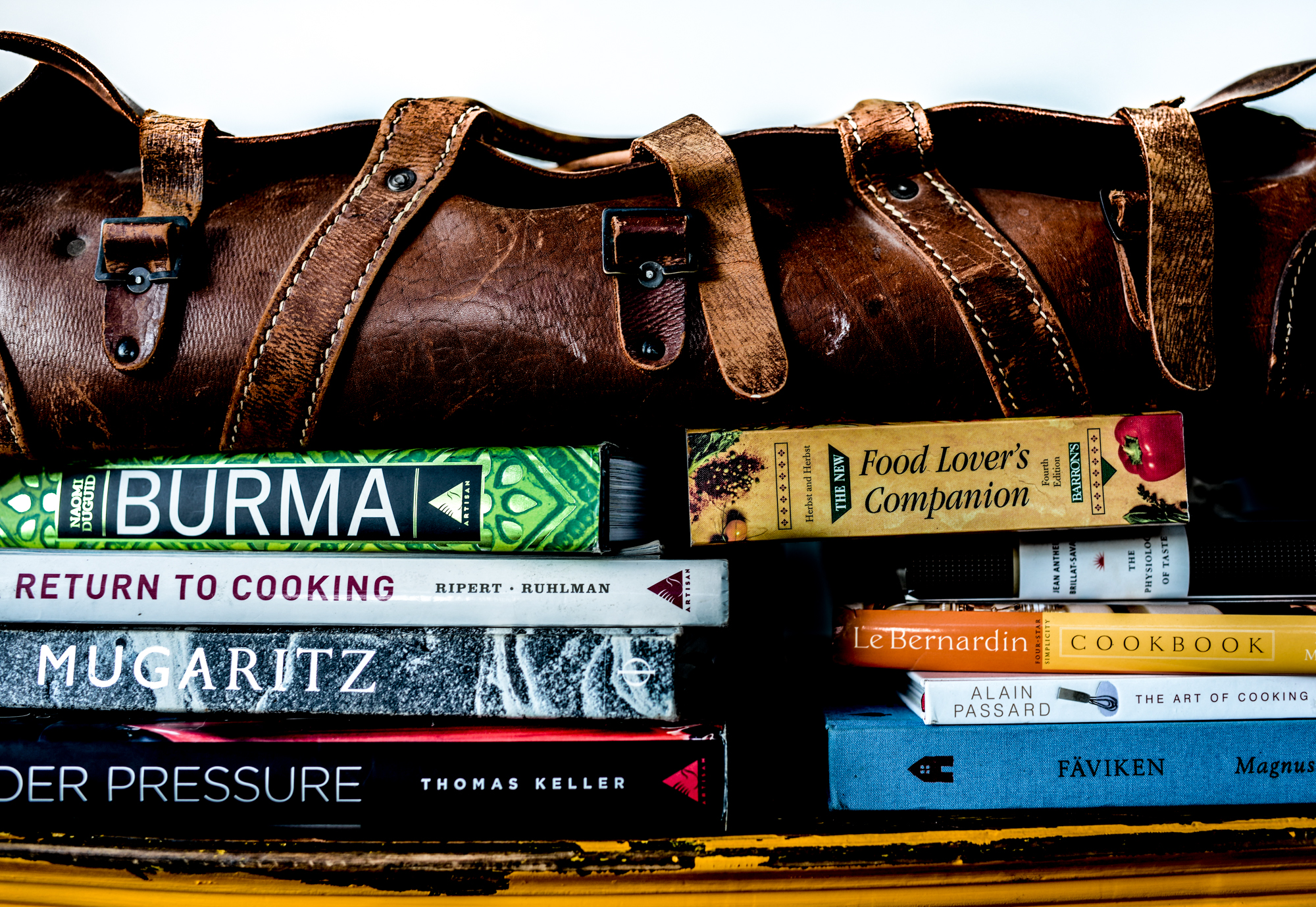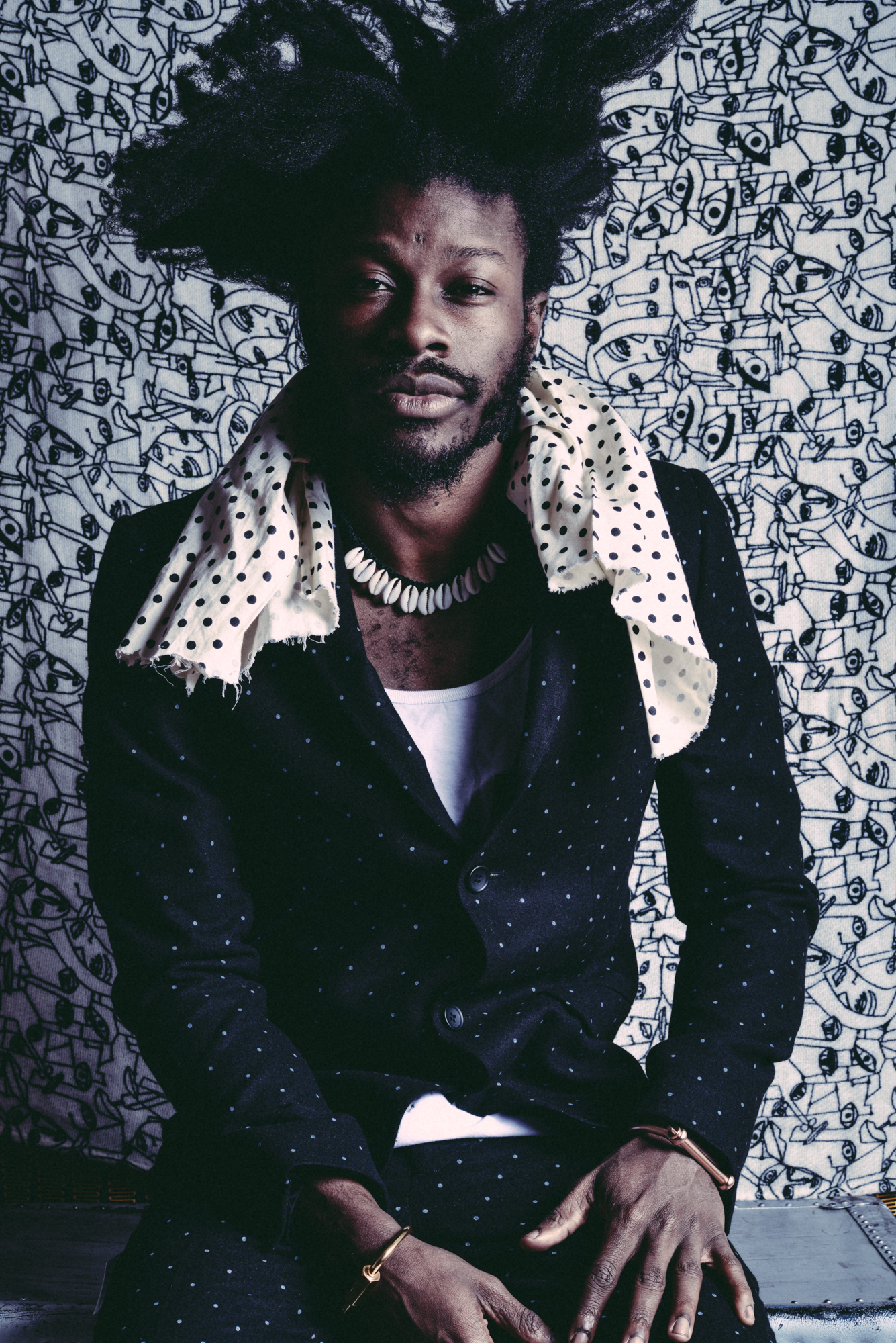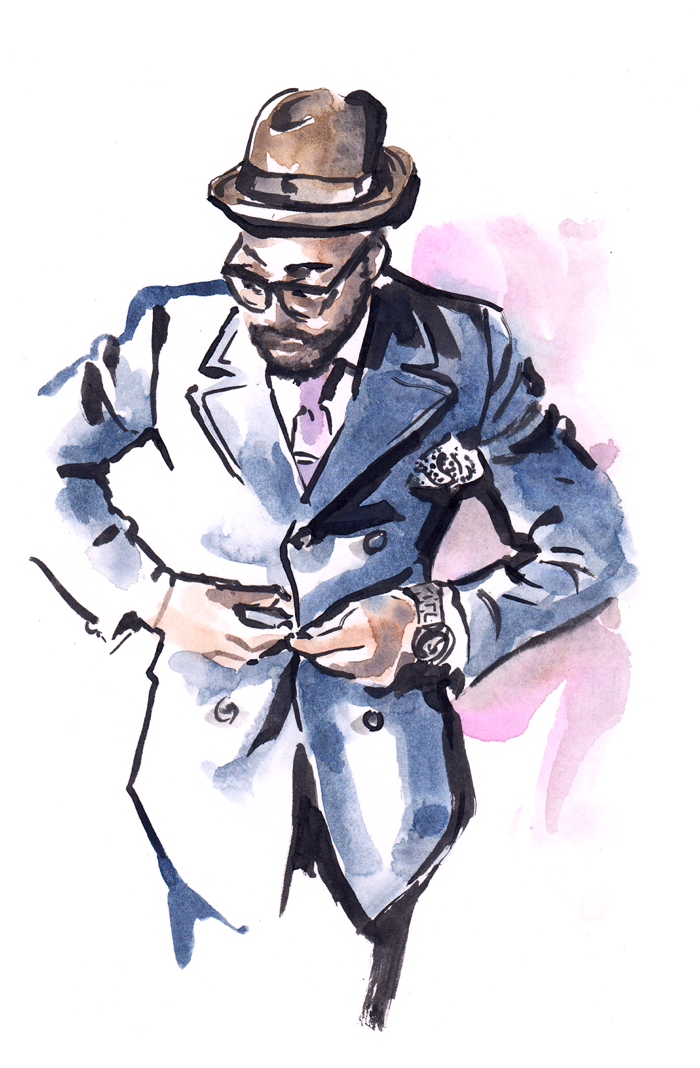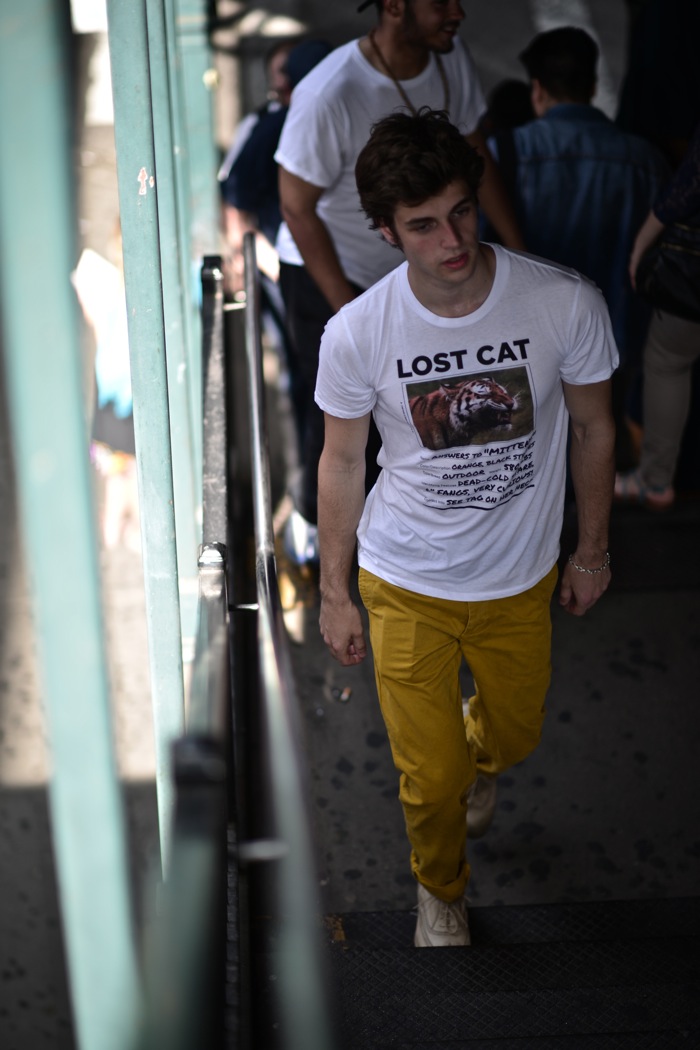The Food Sermon: The Man and the Message
It was seemingly just another Monday afternoon in Brooklyn until a growing cluster of clouds vyed for a spot in the sky. Despite what seemed to be a day an imminent day of rain on the horizon, we still rode our bikes to meet up with Rawlston Williams, the owner and chef at The Food Sermon in Crown Heights.
We pulled up to the restaurant nestled on the corner of Rogers Ave. and Sullivan Pl. From the outside, the building structure is elegantly understated; a minimal black coat of paint accented by golden-yellow letters spelling it’s name. There was a sign on the door that apologetically read, “Open at 4pm. Sorry!” We were just a tad bit early but Rawlston greeted us at the door with his signature smile; the one that faithfully expresses love even in cases of fatigue. We shake hands and make our way into the restaurant while a gentleman patiently awaits for the clock to strike 4. Yeh, it’s that serious. And moments later, we quickly begin to understand allure behind the cuisine and atmosphere of The Food Sermon.
What’s the first thing that comes to your mind when you hear the word “food”?
I think of intimacy. The idea of me or someone else making something with their hands; peeling and touching it, putting heat to it then you believing in it and putting it in your body is a big deal. A huge deal!
We all have our unique relationship with food. Where did that intimacy come from for you?
Well, as a child I didn’t like food because I grew up vegetarian and all the kids in the neighborhood got to eat stew chicken and others meats. But my aunt, who raised me, was sick all the time. So, when she was bedridden at times, I became her arms and legs at five or six years old. She would yell out ingredients to me from her window. “Grab a cup of flour, salt, coconut!” Here I am making dumplings, soups, rice and stew peas. Not fully understanding what I was doing but following her directives nonetheless.
Wow! That’s amazing. For you, it’s clear that cooking was done out of necessity to assist your aunt. When did you decide that the culinary arts was something that you wanted to pursue?
I wish I could say there was a specific time that I wanted to do this. I moved to New York from the south. I studied theology and didn’t complete my studies. I was unsure about it as far as a long term profession. I then picked up a day job which I hated. I knew that I loved to cook and I wanted to start cooking more often. So, I would go on tours at these culinary schools. I went to about 6 or 7 tours at the French Culinary Institute. I would go to west village in the city, park my car, and watch the students come out on their smoke breaks and just imagine that would be me one day. Fully knowing there was no way on earth I could afford the schooling.
Therefore, I started buying culinary books. I would Google things like "Best chef in the world", YouTube search "famous chef" or "popular chef." I even listened to programs on NPR radio that were related to cooking. I was determined to teach myself how to be a chef. I would buy a whole salmon, invite some of my buddies over, and we'd debone it then cook it several different ways. From that experience, I started cooking more complicated meals. I would put together an elaborate meal, not have a single bite and be totally fulfilled in watching others eat it. I get filled from the feeling of watching others enjoy food.
Were you raised around that spirit of giving, growing up in Saint Vincent? Because it’s not familiar for an individual to develop a certain quality with first seeing it manifest in someone else.
In our community we had the only television and fridge. Kids would come and get ice for their lunch or to put in their juices. We had something called investment in my church. Where you dedicated something, whether it be an item or a task, and whatever you made from it you gave it back to God. I had ice duty. But i ended up finding it very hard to charge people so I gave away the ice for free.
My aunt instilled sharing in my way of life. I had a bunch of toys which weren’t really my toys. If my cousin came over and started playing with one of my toys, I couldn’t just take it from him. I had to wait until he was done playing with it.
When I was three years old, my mom left me with my aunt Gloria to sort things out in the U.S. My mom came back seven years later. During that time, my auntie wanted to make sure she returned a certain product back to the owner. Auntie Gloria made sure I had a handkerchief in my pocket, at all times, just in case someone else needed it. Down to this day, I keep a hanky in my back pocket.
What were some of your cooking inspirations?
Eric Ripert who owns Le Bernardin in the city inspired me to pay attention to my technique. He's precise in the way that he prepares his dishes. I also love the fact that he’s very kind. He doesn’t look like a yeller and I respect that. Dorothy Hamilton is another individual who I admire. She founded the French Culinary Institute and modeled it after Ace Tech Auto school. Dan Barber said that the best advice to give a chef is to be in shape. Now that I have my own restaurant, I totally understand the importance of that advice. I read a bunch of books on how to become a chef but one that stands out to me is “Letters to Young Chef” by Daniel Boulud.
How would you describe your cuisine?
The technique is the pretty much the same across the board, typical rules that every chef should have. But in reference to my cuisine, I cook based on experience. It's a snapshot of my journey. I'm from the islands but I'm also American in certain ways. I've spent most of my life in the States. It's an amalgamation of both sides and I embrace that. I would be bored cooking straight west indian food. We have jerk chicken and other staples but why don't we use the jerk seasoning in another dish? We have a bunch of information and resources that we can try to reinterpret. I look at other cuisines to see how certain elements could be applied to Caribbean food.
So it’s a fusion?
Yeh, it’s a fusion. I used to hate that word but that’s what it is!
It’s a medley!
Exactly! And that’s what we are. That’s what America is. That’s what New York is. The idea of a melting pot. All those experiences made me who I am and it will be reflective in what I’m cooking.
On the topic of New York, your restaurant has been here in Brooklyn for a number of months now. What would you say is the most popular dish so far?
It goes in waves. I can't really pick one. But the Island Bowls are very popular. It's a mix of Caribbean flavors composed of your choice of rice, rice and chickpeas or rice and beans. A choice of protein (lamb, chicken, fish or tofu) ginger sauce and spiced tomato sauce. You can even add veggies if you like. Build it however you desire.
All meals cater to the person. You may want more or less food and you should be able to make that choice. That's why the dishes are called “offerings.” The customer may choose to accept or decline.
What is it about this location that adds to the excitement and appeal of The Food Sermon?
This location was a restaurant in the past. It’s connected to the people. Everyone has a story about the corner location. People would come in and say, "Do you know what used to be here?" then proceed to tell me various stories about the history of this building. I had no clue about that, initially. Honestly, I wasn’t looking for this place. One day, I got a ticket right out front for making a bad turn on Empire Blvd. The Cops pulled me over and as they were running my information I looked out at the storefront and said, “I love this place! One day it’ll be mine.” At first, it wasn’t supposed to be a restaurant. Just a kitchen that did a little catering here and there. But because of windows and the story of those in the neighborhood, it felt wrong keeping the people out of it. However, I didn’t think it would take so long to build.
Was it an issue with the contractor?
No, we built it! I chipped the plaster off the walls, we pulled off seven layers of linoleum off the ground.
Wait, you didn’t hire anyone?
I mean, we hired people to help out. But ultimately, we did a lot of this ourselves.
Phenomenal! Let’s talk about the decor because there’s a real “homely” feel here.
Yea! I want it to feel like you’re coming to my place to have a meal. You come to this humble abode but I want it to feel like a grand event. The drawers and the stools are items from my house that we painted and customized. Even the painting of the gentleman on the wall represents my culture. Back home there’s always a guy that can get you whatever you want. It may be mangoes that are out of season or some sort of produce. In the painting, there’s a cow on his head which represents Christmastime.
Talk me through the name, “The Food Sermon”. Sure we know what the individual words mean but what does the name mean in reference to this place you’ve built.
Well, everyone has a message and that message is their sermon. I remember sitting on my bed and asking myself, “What is my message? What am I telling the world? What is my life all about?!” Then it hit me. It’s food! That’s why I named it "The Food Sermon." It had a ring to it and yet, it sounded a bit weird. The more I say it, the more I love it. It just makes sense.
Why the message “We Believe in You”? It’s so empowering. Where did that come from?
It came from a time of doubt. At five in the morning, the day before opening, I sent a text to my friends in a group chat; the same guys who were with me when I first started cooking. I expressed to them that I didn’t think anyone would show up to the opening and that I was wasting my time. They said, “You’re crazy! The food is great and people will love it!” After that boost of encouragement, I went to sleep and I had a crazy dream of kids running around with streamers saying to me, “We believe in you!” The fact that you come to this place and spend your money is an endorsement that let’s me know that what I’ve done is worthy of your hard work. Everything in life circulates around a belief system in one another.
What is the ultimate satisfaction of having this place and giving people experiences through your cooking?
The ultimate satisfaction for me is having a good name in the end. I have a bunch of family members who lament about what they should have done something when they were younger. I just want to work hard and do my best. It feels good to limp home in the night, lay down and do it all over again the next day.
